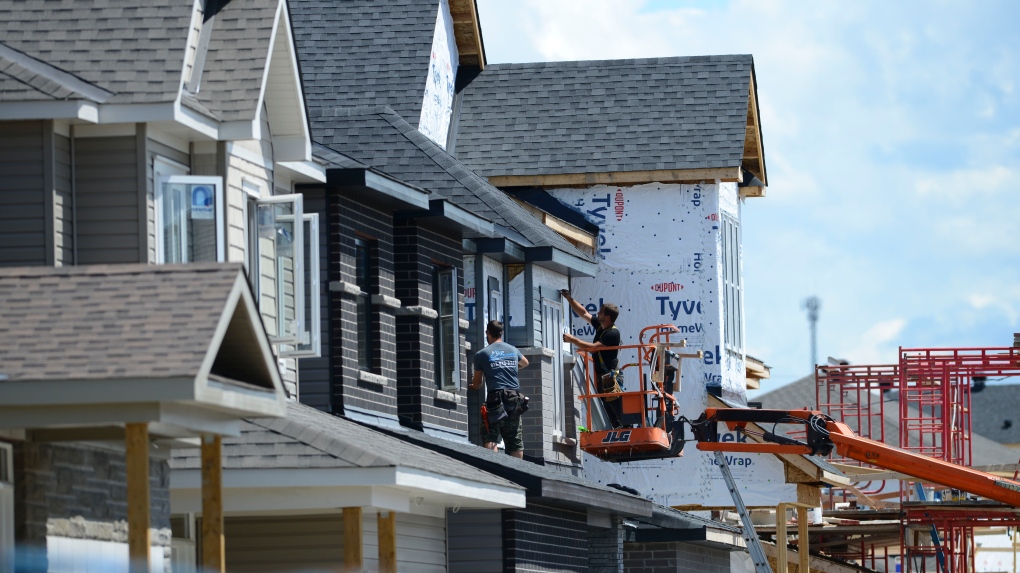
Table of Contents
Canada’s real estate market is often described as one of the most expensive in the world. Cities like Vancouver, Toronto, and Montreal have become synonymous with skyrocketing housing prices. To understand why the cost of real estate is so high, we need to examine several interconnected factors driving these trends.
Imbalance Between Supply and Demand
One of the primary reasons for the high cost of real estate in Canada is the imbalance between housing supply and demand. Cities like Toronto and Vancouver are experiencing population booms, driven by immigration and job opportunities. However, the construction of new housing has not kept pace with this growth.
The limited availability of land, combined with stringent zoning laws, makes it difficult to build enough homes to meet the demand. This shortage creates fierce competition among buyers, driving up property prices significantly.
Immigration and Population Growth
Canada’s immigration policies are a key contributor to population growth, particularly in urban centers. Newcomers often settle in large cities, adding to the demand for housing. According to government statistics, Canada welcomes over 400,000 immigrants annually, with many choosing to live in areas with already stretched housing markets.
This influx of residents increases the demand for housing, especially in cities with strong job markets, schools, and infrastructure. The pressure on the housing market pushes prices higher, especially in urban areas where land and homes are limited.
Influence of Foreign Investment
Foreign investment has been a significant driver of real estate prices in Canada. International buyers often view Canadian properties as a stable and lucrative investment. This is particularly evident in high-demand cities like Vancouver and Toronto, where foreign buyers frequently purchase luxury homes or investment properties.
While policies such as foreign buyers’ taxes have been implemented in some provinces, the overall impact on reducing property prices has been minimal. The presence of foreign buyers continues to contribute to escalating home values.
Historically Low Interest Rates
Canada’s low interest rates have also played a major role in increasing real estate prices. Low mortgage rates make borrowing more affordable, enabling more people to purchase homes. While this might seem beneficial for buyers, it also fuels competition, as more individuals enter the market.
Additionally, low interest rates have encouraged speculative buying, where investors purchase homes expecting prices to rise. This speculative activity adds further pressure on the housing market, driving prices even higher.
Zoning Laws and Land Use Restrictions
Restrictive zoning laws and land use policies contribute significantly to the high cost of real estate in Canada. Many municipalities prioritize single-family homes over higher-density housing such as condos or apartment buildings.
These regulations limit the types of properties that can be built, reducing the overall supply of housing. Coupled with lengthy approval processes for new developments, these restrictions make it challenging to address housing shortages effectively.
High Construction and Development Costs
The cost of constructing new homes in Canada is higher than in many other countries. Rising labor costs, shortages of skilled workers, and high material costs all contribute to this issue. The global supply chain crisis and tariffs on key building materials, such as lumber, have further exacerbated the problem.
These high construction costs are passed on to buyers, increasing the price of homes. Developers often focus on building luxury properties to maximize returns, leaving fewer affordable housing options on the market.
Real Estate Speculation
Speculative buying has become increasingly common in Canada’s real estate market. Investors purchase properties not to live in but to resell at a profit. This speculative activity inflates property values, particularly in high-demand neighborhoods.
Bidding wars, often driven by speculative investors, can lead to artificially high prices. This trend makes it even more difficult for first-time buyers to enter the market.
Urbanization Trends
Canada’s population is highly concentrated in urban areas, with the majority of residents living in cities like Toronto, Vancouver, and Montreal. These cities offer better job prospects, amenities, and infrastructure, making them attractive places to live.
However, the limited availability of land in urban centers creates fierce competition for properties. Urban sprawl is constrained by geographical and regulatory factors, leading to higher prices for homes in desirable locations.
Government Policies and Taxation
While government interventions like the First-Time Home Buyer Incentive aim to make housing more accessible, other policies inadvertently contribute to high prices. Property transfer taxes, foreign buyer taxes, and speculation taxes often get passed down to buyers or absorbed into property costs.
Moreover, affordable housing initiatives often lack sufficient funding or face delays in implementation, leaving gaps in the market that exacerbate housing affordability issues.
Global and Economic Stability
Canada’s reputation as a safe and stable country makes its real estate market attractive to global investors. The nation’s strong banking system, robust economy, and political stability contribute to this appeal.
This demand from international buyers increases competition for properties, particularly in desirable neighborhoods, pushing up prices even further.
Rental Market Pressures
As homeownership becomes less affordable, more Canadians are turning to the rental market. Increased demand for rental properties drives up rental prices, which in turn encourages investors to purchase more properties as income-generating assets. This cycle of high rents and high property prices perpetuates the affordability crisis.
The COVID-19 Pandemic’s Impact
The COVID-19 pandemic created unexpected shifts in the housing market. Remote work trends drove demand for larger homes, as people sought more space for home offices and outdoor areas. Suburban and rural markets saw a surge in demand, causing prices to rise even in areas that were traditionally more affordable.
Additionally, pandemic-induced savings allowed some buyers to enter the market with larger down payments, increasing competition for homes.
Conclusion
Canada’s real estate market is shaped by a complex interplay of factors, from population growth and foreign investment to restrictive zoning laws and economic stability. While efforts have been made to address affordability, the market remains one of the most expensive globally. Understanding these dynamics is key to navigating the challenges of buying or investing in Canadian real estate.
